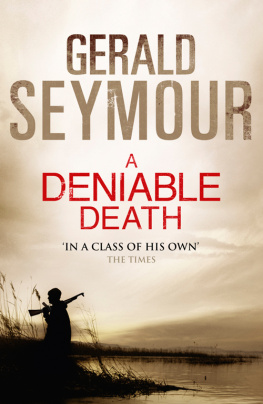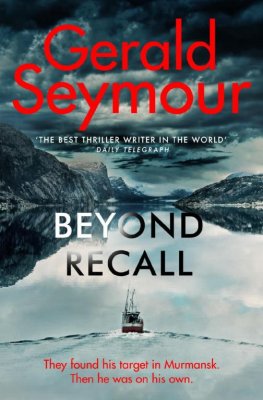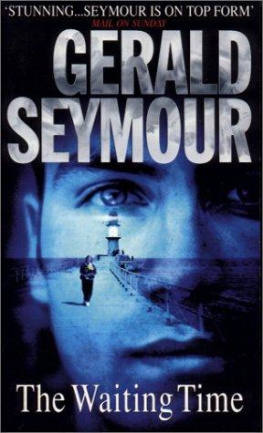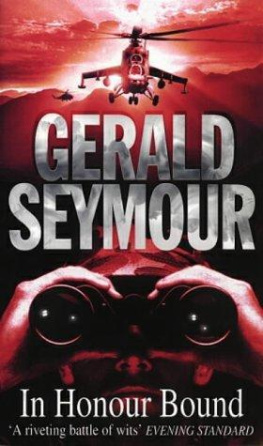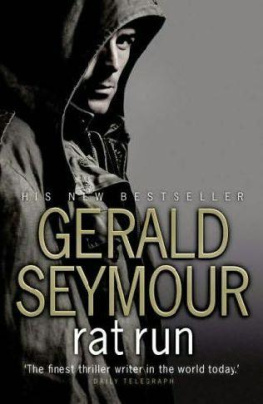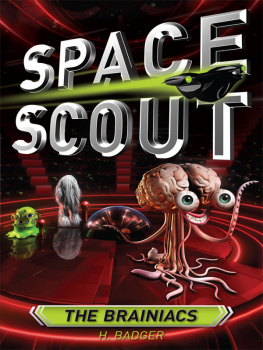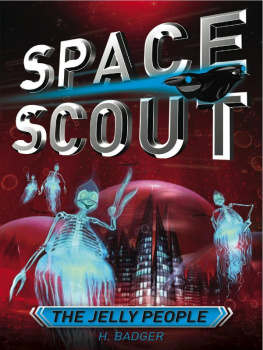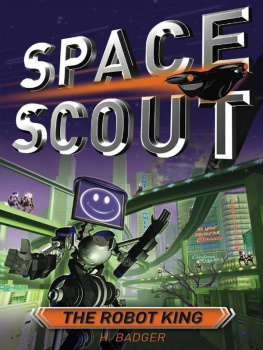CONTENTS
Chapter 1
An unobtrusive man, he was noticed by few of the pedestrians who shared the steps with him that climbed to the pavements of Vauxhall Bridge in the November rain. He left behind him the cream and green walls and the darkened plate glass expanses of the building that those outside the disciplines of the Service called Ceausescu Towers the headquarters of MI6. He walked briskly. It was his job to move unseen and not to attract attention, even inside the Towers. Len Gibbons was known to few of those who passed through the security gates, morning and evening, alongside him, or shared the lift to and from the third floor where his desk, East 3-97/14, stood, or waited in the canteen lunch queue with him. The few who did know him, however, regarded this middle-grade manager as a safe pair of hands and in the trade that was about as good an accolade as could be handed out. As a safe pair of hands, he was entitled to trust and responsibility and he had received both that afternoon at a meeting with the director general: no notes taken.
The word of the day was deniable . The meeting in itself was deniable, the matter discussed was deniable, and the conclusions reached were deniable. The actions that would be taken were also deniable. Len Gibbons had been called to the upper floors and briefed over a pot of tea and a shortbread biscuit. Take the bastard down, Len, would be the vulgar way to put it. Take him down and leave him on a kerb so that his head rolls in the gutter and the blood runs down the drain. Not, of course, that we like vulgarity. We might more politely call it interdiction. Actually, I prefer take the bastard down. Itll be deniable. My diary has me in the Cabinet Office fifteen minutes ago, and there all afternoon. So, go to it, Len, and know that many men and widows will be cheering you on. If you bring him down there will be cheering to the rafters. Its not the sort of thing weve done in years a first in my time but it has my total support... as long as it stays deniable.
Half an hour later he had cleared his desk and, with a filled briefcase, had allowed his assistant to leave ahead of him. He had switched off the lights, locked the doors, and they had gone down to the central hall in the lift. They had swiped their cards at Security, walked out into the rain and headed for the bridge. He did not look back at the building, did not know how many days he would be away from it, and whether he would win or lose... But the job would get his best effort. That, Len Gibbons guaranteed.
Across the bridge, he headed for the Underground station. He preferred to mingle with the masses that crowded the trains. He bought the two tickets and passed one over his shoulder, no turn of the head, no smile, to Sarah and felt her take it quickly, discreetly. Descending on the escalator he had the briefcase held tight across his chest, his coat sleeve hanging far enough forward to mask the chain linking the handle to the handcuff attachment on his wrist. Inside the briefcase were the maps, charts and lists for coded contact that would assist towards the state-sponsored killing of an individual whose life was considered forfeit... all, of course, deniable.
He wore the years well, fifty-nine, and was physically fit, mentally alert, with good colour in his face. His trade demanded ordinariness rather than eccentricity, and there was little about him that those on the platform would remember: no sign of the hairstyle under the trilby and behind the beige scarf, no sight of his shirt or tie because the raincoat was buttoned high. The briefcase bore no EIIR, embossed in gold, which would have shown he was a servant of the state. If any had noted him, glanced quickly at the trilby, they might have thought him a rather boring man whose employment shelf life drifted to a close. They would have been wrong. God, in the Towers, had known Gibbons the length of his professional career, would have judged him a man of insight and acumen, but handicapped by a throw of the dice: those damned events that could derail any intelligence officers career. He might appear a buffoon, might cultivate that image, might use it as a cover to divert attention from the reality of a stiletto-sharp mind. He trekked into the heavier rain as the afternoon closed dankly on Central London.
The Underground behind them, they passed the entrance to the Ritz Hotel, then skirted the south side of Piccadilly Circus neither looked up at the Eros statue and turned down into Haymarket. She came level to his elbow and murmured the number they should look for. He nodded. They were a team. The rains drips fell regularly from his hat brim and her hair was soaked, but they made no small-talk about the awfulness of the weather. Probably her mind was swamped as his was with the enormity of what they hoped to achieve in the next hours and days not weeks.
There was a doorway and, inside, newspapers were scattered instead of a mat. A man in commissionaires uniform sat at a desk but they were not challenged and declined to use the lift. Instead they walked up two flights and slipped along a corridor of closed doors, none of which boasted the legend of a company or business. She had a Yale and two mortise keys out of her handbag and he stood at the side while she unfastened the door. Gibbons did not know when the Service had last used the premises, whether they were regular or occasional visitors. He assumed that a front company held the lease and that all connections to the Towers were well disguised. Old procedures died hard. No interior lights were switched on until Sarah had gone to the windows of both main rooms, the kitchenette behind a partition, the toilet and shower room and pulled down the blinds. There was a room with a desk, a chair, and a small settee for him, and a room with a desk, chair, portable TV and a folded single bed for her; there were cupboards for each of them, a safe with a combination lock. Now, the reserve on his face faded: that buzz, the adrenalin flush and the excitement surge replaced it. He was a bureaucrat and a small cog by fate of circumstance between large wheels and he accepted that, but he took pride in what he did. Usually he succeeded in providing what was asked of him. Bare walls confronted Len Gibbons and a wintry smile settled on his lips. She had emptied his case of photographs and the big folded map, and had the roll of Sellotape in her hand. She did not bother to ask him where she should display the images.
A ceiling light lit the desk on which were his phone, lap-top, notebooks, pencils and the paraphernalia that travelled with him. She chose the wall in his direct eye-line as the place to stick up the photographs. Some were classified and others were not. She fastened them in the same haphazard jumble in which they had been displayed before. There were pictures of armoured vehicles, all shapes and sizes, all wrecked some turned right over, some on their sides and some left as debris because the wheels had gone, or the tracks. The craters in tarmacked roads leading straight across flat sand landscapes were great gouges in some a soldier could have stood, the top of his helmet hidden. Still-frames, a quarter covered with Arabic text, showed a moment of detonation that had been downloaded from websites. There were clear portraits, taken with a macro-lens in extreme close-up, of the gear used in the bombs and their sophistication. He liked to know his enemy and thought it important to display the enemys work and skills, to have them present around him at all times... There were photographs from the party last Christmas at a rehabilitation home where young men with military haircuts, all amputees, waved stunted limbs defiantly at the camera... and there was one magnified picture of a procession, slow and black, in the High Street of a country town. He had been with the operation from the beginning and thought now that, if his Maker was willing, it approached the end. At the beginning, two years and three months before, a man had sneezed.

